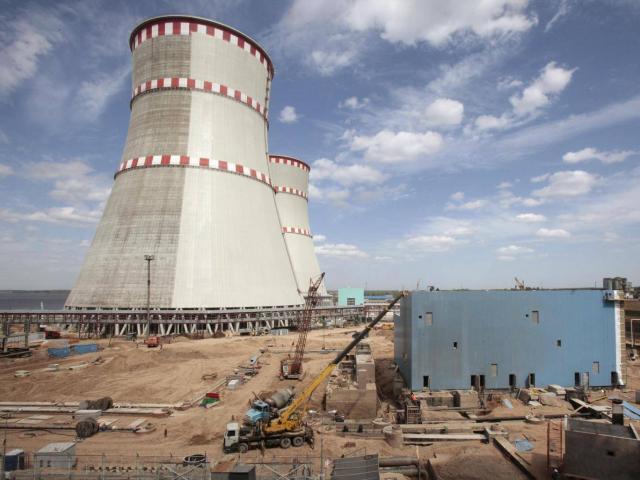
EIPR calls on the government to disclose the details of and respect the constitution in the agreements of the Dabaa Nuclear plant
Press Release
The Egyptian Initiative for Personal Rights (EIPR) called on the Egyptian government to disclose the details of the agreements of the Dabaa nuclear plant. EIPR also demanded the government to abide by the constitution and present the agreement and the related loan agreement to the parliament and obtain its approval before the implementation and not proceed with the project under these conditions. EIPR also urged the parliament to assume responsibility and ask the government to introduce the two treaties for review.
Dr. Ragia al-Gerzawy, EIPR environmental researcher, said: "The management of the nuclear file in this way, which violates the constitution and the law and waste the resources of current and future generations and undermine nuclear safety policies, is pushing us towards dire consequences." She added, “Nuclear energy is a matter that involves the whole of society”.
On 11 December 2017 witnessed the signing ceremony of the document to signal the start of the project of Dabaa nuclear plant, in the presence of the Egyptian and Russian presidents during the latter's visit to Egypt. The Minister of Electricity stated in a number of subsequent media briefings that by signing this document, the four contracts related to the construction of the plant have entered into force, and work on the project will commence immediately.
The Egyptian government has signed on November 19, 2015 two agreements with the Russian government. The first was between the Egyptian Ministry of Electricity and the Russian government company Ross Atom to build a nuclear plant, consisting of four reactors each capacity of 1200 MW in the Dabaa. The second agreement was between the Egyptian and the Russian Ministries of Finance, to provide a loan from the Russian government to Egypt worth 25 billion dollars used in the construction of the station. In addition to the signing of a memorandum of understanding between the Egyptian Nuclear and Radiological Regulatory Authority and the Russian Federal Service for Environmental, Technological and Nuclear Supervision. The Egyptian president attended the signing ceremony.
On December 24, 2015, the President approved the loan agreement with a reservation, subject to ratification by Parliament. However, the agreement was not published in the Official Gazette, until about five months, on May 5, 2016. The loan aagreement has not yet been submitted to Parliament as required by article 151 of the constitution, although a number of parliament deputies have submitted requests for briefings to discuss the treaty, which means that the treaty has not entered into force and may not be used.
According to the loan agreement, Egypt will receive a $ 25 billion from the Russian government to finance 85% of the work and services of the Dabaa nuclear plant. The loan will be used for 13 years during the period from 2016 to 2028. The Egyptian party shall pay an interest of 3% per annum, that shall be calculated from the first day of installments. If any of the said interest is not repaid within 10 working days, it shall be subject to arrears of 150% of the interest rate calculated on a daily basis. The loan shall be paid over 22 years beginning 2029.
The loan will lead to a significant increase in Egypt’s external debts, which currently stands at about $ 79 billion. There are major questions about the feasibility of this huge expenditure to generate what will amount to only 7% of Egypt's needs when it starts operating around 2029. There are further questions about Egypt's need for nuclear-generated electricity with the availability of natural gas and the abundance of renewable sources. There are also doubts about the ability of the station to pay off this huge debt from the sale of electricity, especially since nuclear power worldwide is facing significant economic losses.
On the other hand, the agreement on the establishment and operation of the nuclear plant signed between the Ministry of Electricity and the Russian company has not yet been published in the official gazette. It has not been submitted to the parliament and has not been approved, in violation of articles 151 and 225 of the cconstitution. The content of the four contracts that included in this agreement which, according to the statements of the Minister of Electricity are : contracts related to construction, and the supply of nuclear fuel, and spent fuel, operation and technical support, have not been divulged.
There have been reports of a number of problems with regards the contracts, relating to the, significantly ambiguous language, meaning that Egypt in fact accept responsibilities that may be vague and may have very difficult consequences in terms of security and finance. As well as the problems of processing spent fuel and the ability of Egypt to deal with such risks.
In addition, the recently passed laws on the regulatory and supervisory structure of nuclear activities, about which the State Council expressed a number of reservations, as well as the Ministry of Finance and some research centers, are severely flawed and seriously undermine nuclear safety policies.



